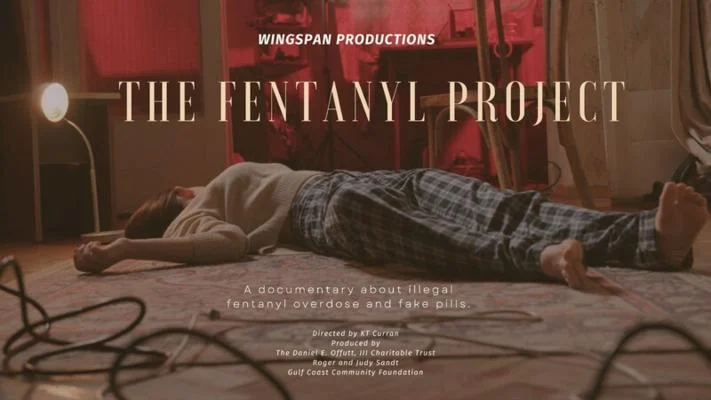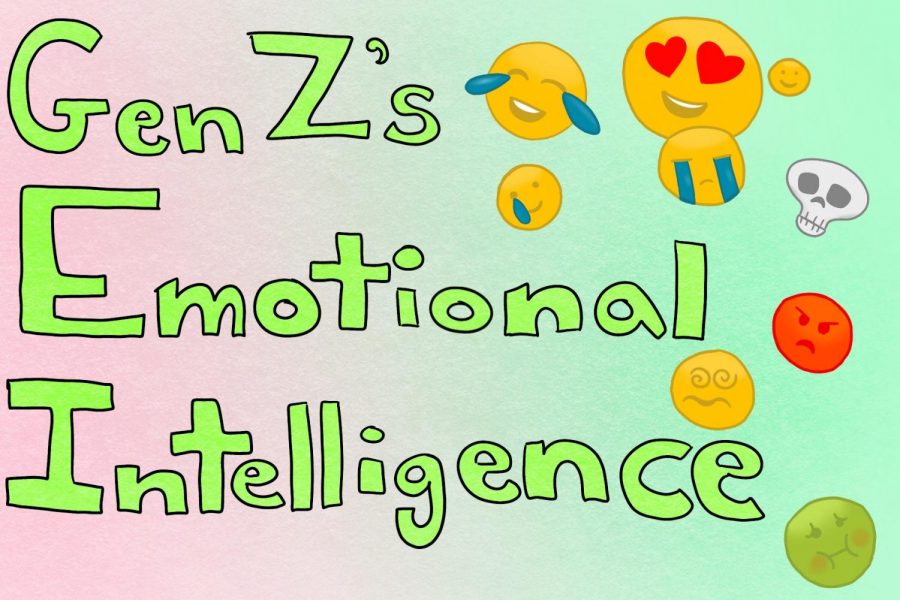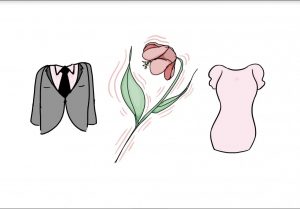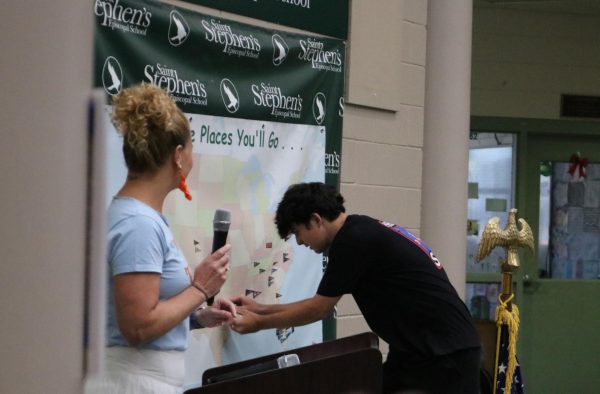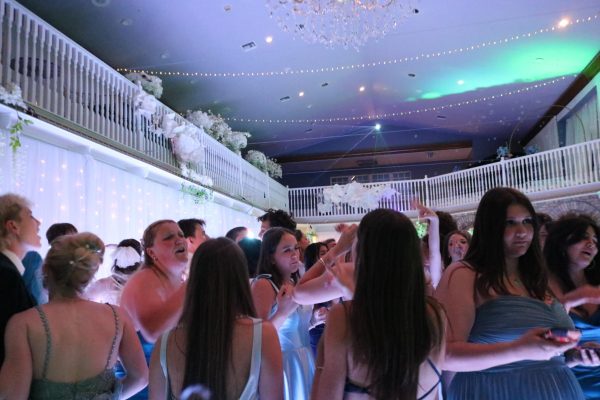Ansley’s column: Are we too fragile?
The following is part of a regular column written by Associate Editor Ansley Morris.
Original Art by Sarabeth Wester showing the pro’s and con’s of the emotional intelligence in Generation Z.
November 3, 2021
Sticks and stones may break your bones, but your words will hurt Gen Z. In the age of social media, Generation Z seems to be more emotionally fragile than any past generation (even though we’re physically the safest we’ve ever been).
So the question is, why is that?
Social media, smartphones, and mental health advocacy are three defining characteristics of people who have grown up in Gen Z, and in a way, these three items have impacted us in ways making us more emotionally fragile and anxious than any other generation.
One manifestation of this fragility is our problem with confrontation. Confrontation is one of the most daunting aspects of life for us Gen Z’ers. It’s not uncommon to come across any high school or college student and find that they’re too scared to raise their hand in class or deal with confrontation at all. This is due to the fact that we’ve grown accustomed to interacting with people through a screen and seeing things through the lens of mental health, which must “be protected” by all means.
Growing up behind a screen has given us the easy way out when it comes to confrontation and dealing with our emotions. It’s come to a point where for Gen Z, emotional discomfort is our equivalent to a physical injury.
For instance, we’ve spent our developing years, especially during COVID, with the ability to just leave someone on ‘read’ or turn our phone off when a conversation gets uncomfortable instead of dealing with the issue face to face. Our screens have become a means by which we can hide from uncomfortable situations, thus leaving us without the skills we need to be able to deal with these situations that are a very real part of life.
Our greatest fear seems to be emotional damage. This is probably due to the fact that we’ve not only become so unaccustomed to in-person interactions and confrontation but also the fact that we have embraced mental health advocacy more than anyone in the past. We’re more likely to reach out for help either through trusted individuals in our lives or therapy so we can get the assistance we need when our mental health is struggling.
I can personally attest to this notion as I have no issue now telling others about my mental health struggles. I’m open to talking or writing about them through articles in hopes to help others who may be struggling with the same issues. But if you asked me to strike up a potentially confrontational conversation with someone, I’d get extremely anxious.
Mental health is just as important as physical health, and accepting that has been one of the shining attributes of Gen Z. But, this tendency also, in turn, ties into how much more sensitive our generation has become as we’re also one of the most depressed generations currently living. According to an article by the Annie E. Casey Foundation, more than half of Generation Z would say their mental health is struggling.
Sensitivity isn’t necessarily a bad thing, and it’s how Gen Z has evolved. Along with sensitivity comes a softer outer shell that makes it easier to talk to one another about issues with our mental health. But, as we soften up these shells, everyone seemingly becomes more afraid of hurting others or taking a misstep in a cancel culture society.
Concepts like cancel culture have monopolized the fears of Gen Z. We are a group that’s so worried about our appearance to others online— we base our social standing and societal approval on how many likes or reposts we get. So, something as small as getting a fewer number of likes on a post is absolutely shattering to our egos. We’ve come to allow social media to control our emotional state in a way that’s not healthy. It’s almost as though we’ve become too sensitive when it comes to the issues we come across online.
The smallest mistakes or comments online can make or break someone’s entire career, chances of getting into college, really their entire life, and we’re all very aware of this. This is a lot of pressure for young adults and kids to be living under, and it’s our own fault. We’ve created such a fear-riddled society that we’ve become too afraid to take risks due to the potential of rejection that social media has implemented into us.
The bottom line is, rejection is a part of life. Whether that comes from a significant other, in a job interview, college application, or any other example, we need to accept the fact that rejection is a very real thing.
Not only is it real, but it’s also even helpful in the long run, which is something that we seem to have lost sight of since we’re so focused on the fact that we got rejected in the first place. Mistakes allow us to work harder and push ourselves, but we’ve become so sensitive that we’re afraid to put ourselves in situations where rejection is possible, hence our hesitation towards confrontation.
The emotional intelligence in Gen Z has evolved in a way that makes us seem more sensitive in simple, confrontational situations, but absolutely ruthless on our online platforms. So, the next time you want to go bash on someone’s social media, take a second to think about how you would feel doing the same thing in person.



